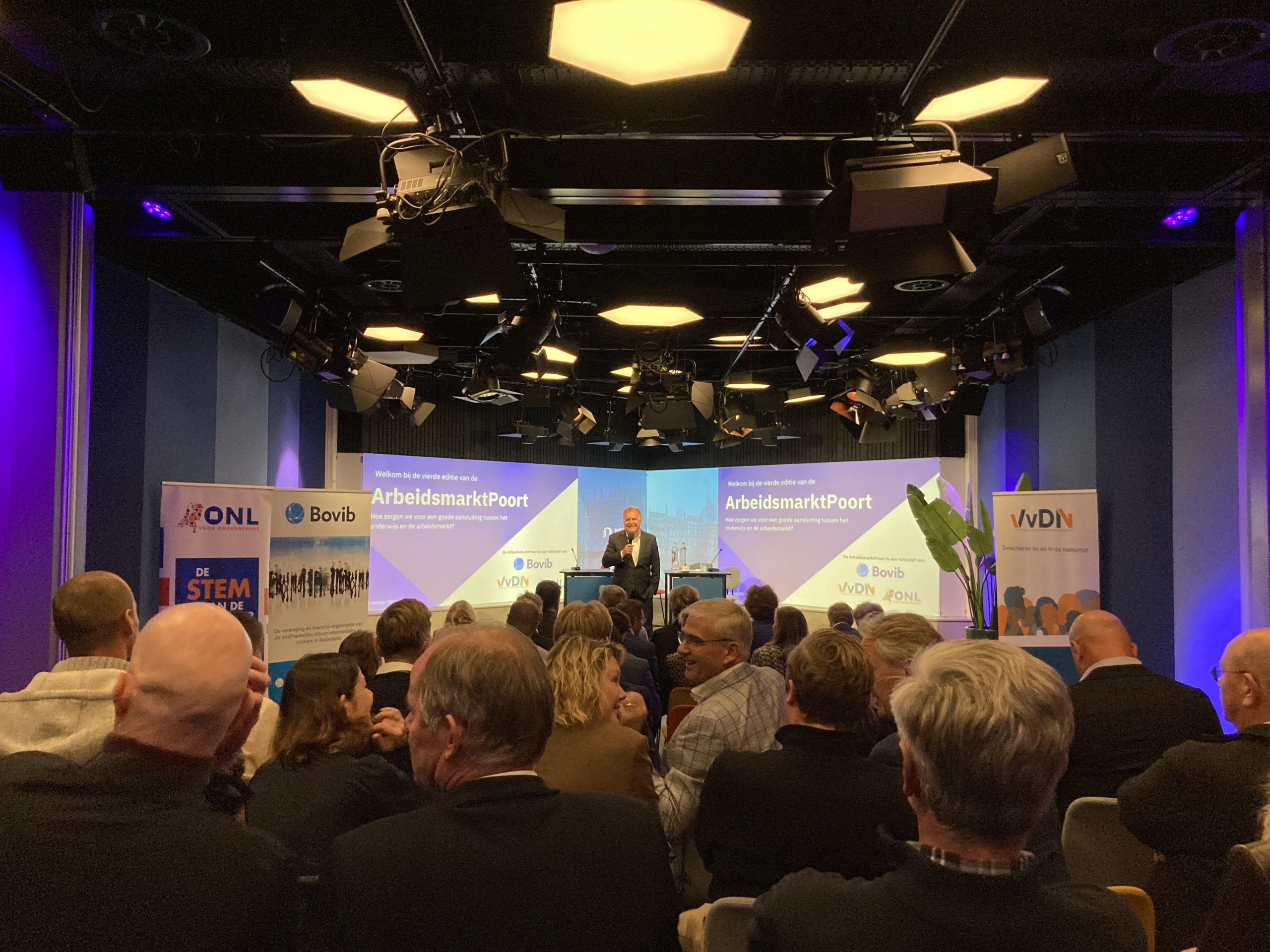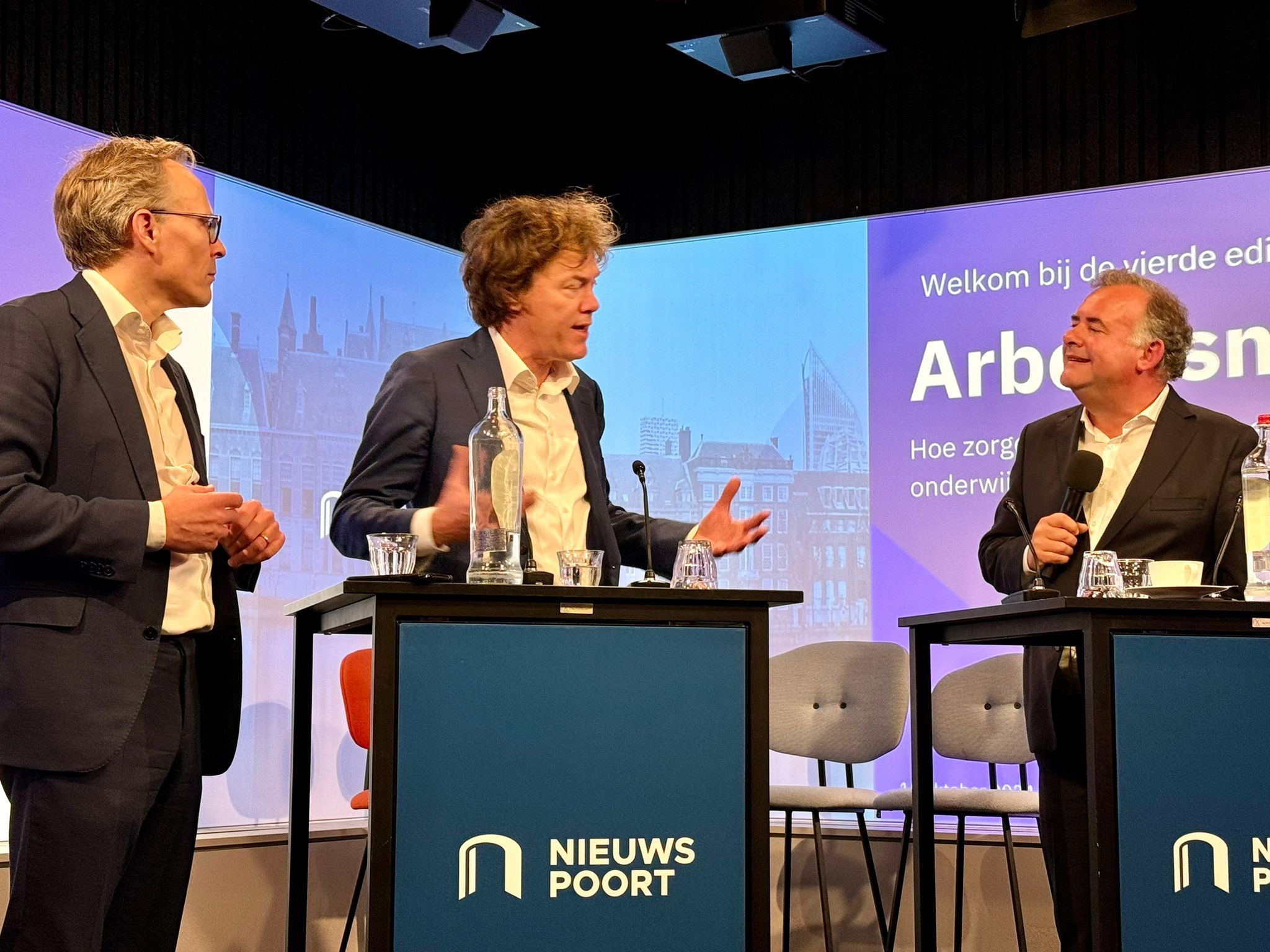On Tuesday, October 15, members of parliament, journalists, civil servants and experts gathered again in Nieuwspoort for the fourth edition of the Labor Market Gate. This time the topic on the agenda was 'the connection between education and the labor market'. Although the subject is of great importance to employers and educational institutions, it is not yet high on the political agenda. All the more reason to exchange views with all stakeholders.
Lifelong development
"We really need to accelerate on the Lifelong Development dossier," stated ROC Mondriaan board chairman Hans Schutte. Led by Hans Biesheuvel, former chairman of ONL for Entrepreneurs, Schutte entered into a conversation with Maurice Limmen, chairman of the Association of Universities of Applied Sciences. Two gentlemen with a clear vision on the issue and a rich career in the field of education. Limmen came with strong words towards the cabinet: "I call the education plans from the coalition agreement worrying. What strikes me is a lack of notion of retraining and upskilling from one sector to another, a vision on this is completely lacking."
Especially in professions where labor is in high demand - such as engineering, healthcare and ICT - it appears that there are too few qualified people to meet this demand. This problem is exacerbated by technological change and an aging workforce. All in all, this is putting increasing pressure on these sectors.

Educational institutions come along with difficulty
Long-term study penalty and labor shortages

Do you have questions about the Labor Market Gateway? Our experts are ready for you - leave your details and we'll get back to you.

Questions about this? Please contact us.
Sem Overduin
Public Policy & Affairs Manager
Sem.Overduin@headfirst.nl
Oifik Youssefi
Public Affairs Officer
Oifik.Youssefi@headfirst.nl
Maaike van Driel
Head of Legal
Maaike.vanDriel@headfirst.group
Thomas ten Veldhuijs
Senior Legal Counsel
Thomas.tenVeldhuijs@headfirst.nl
